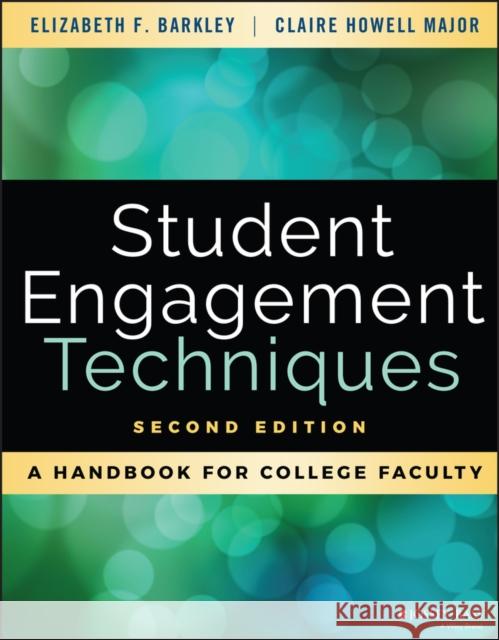Student Engagement Techniques: A Handbook for College Faculty » książka
topmenu
Student Engagement Techniques: A Handbook for College Faculty
ISBN-13: 9781119686774 / Angielski / Miękka / 2020 / 432 str.
Kategorie:
Kategorie BISAC:
Wydawca:
Jossey-Bass
Język:
Angielski
ISBN-13:
9781119686774
Rok wydania:
2020
Ilość stron:
432
Waga:
0.81 kg
Wymiary:
27.43 x 21.59 x 2.79
Oprawa:
Miękka
Wolumenów:
01
Dodatkowe informacje:
Bibliografia











